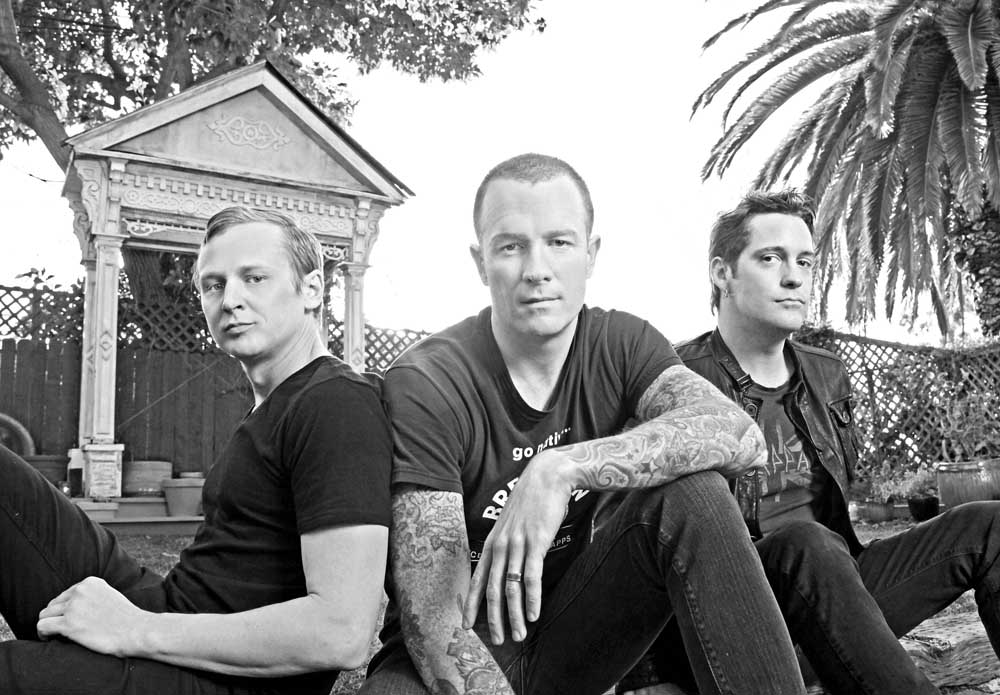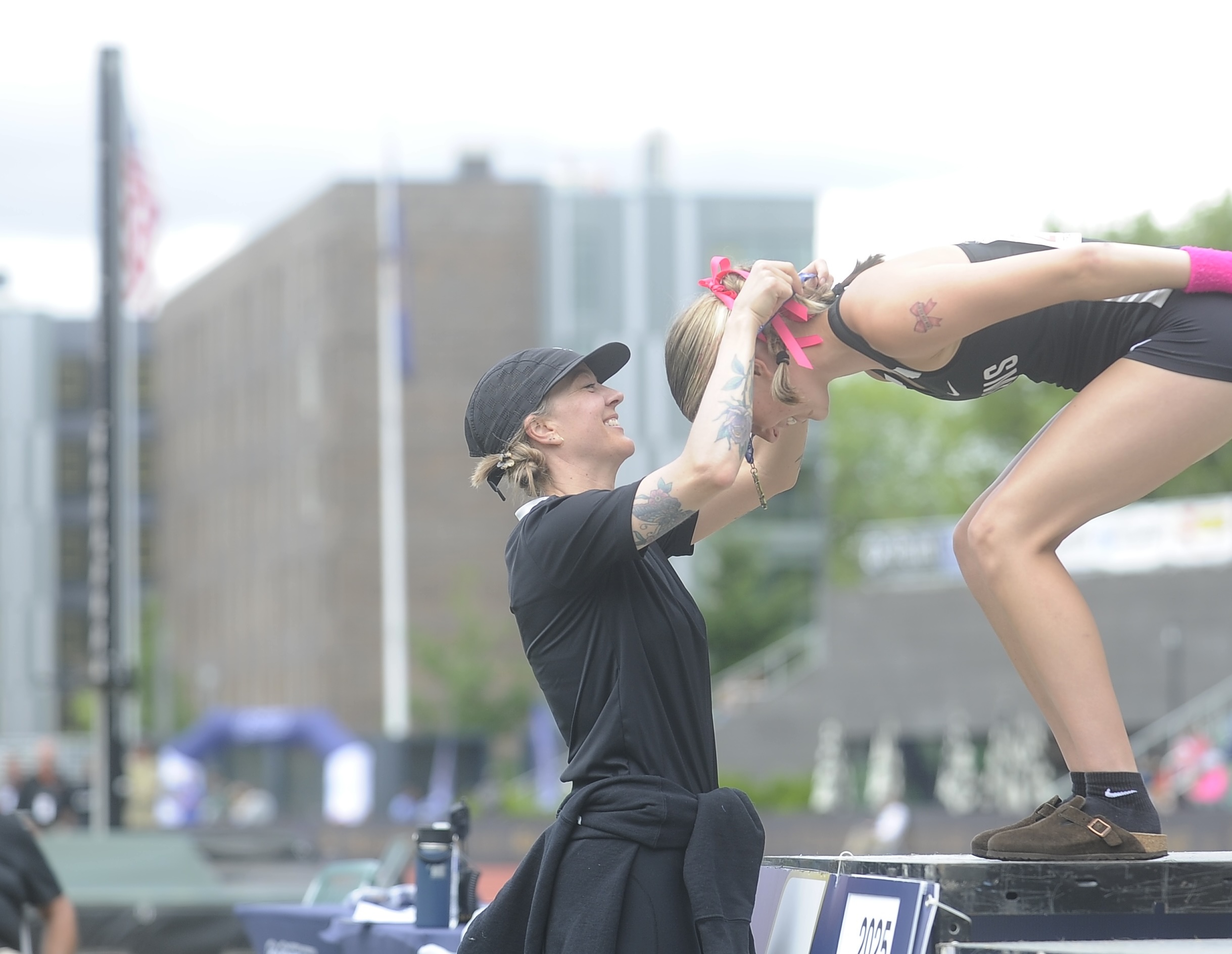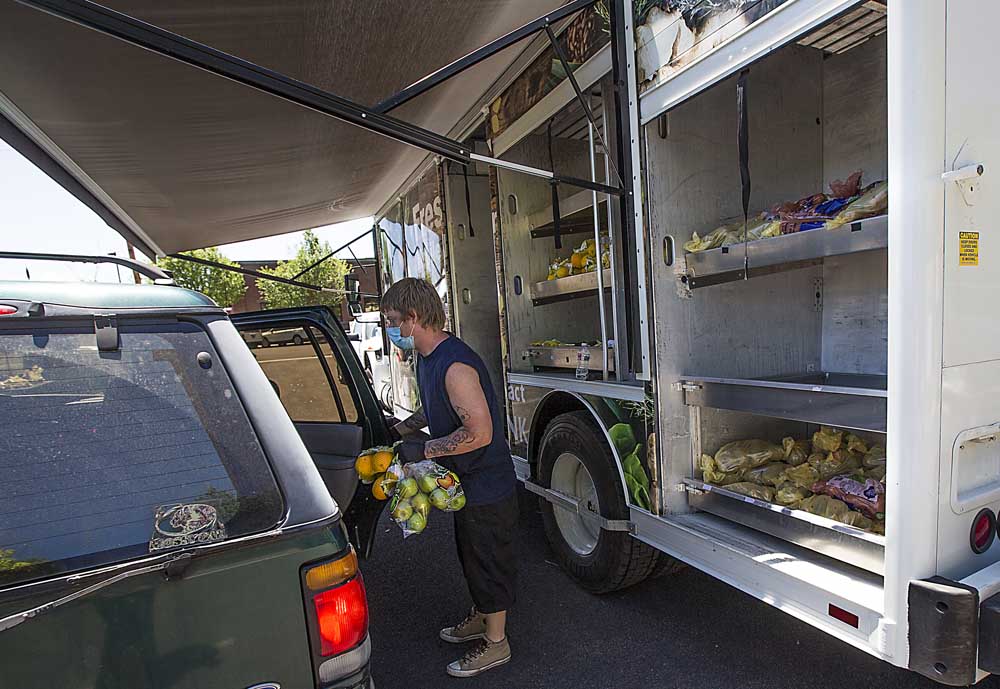Eve 6 to bust out rare tracks in Bend
Published 12:00 am Thursday, May 26, 2016

- Lisa Johnson / submitted photoPop-punk trio Eve 6 — from left, Jon Siebels, Max Collins and Tony Fagenson — will perform at 8 tonight at the Domino Room. The band, best known for late ’90s-early 2000s hits “Inside Out” and “Here’s to the Night,” will perform rare tracks chosen by fans through a Facebook poll during its summer tour.
Eve 6’s road to success would be an anomaly in today’s music world.
When RCA Records signed Eve 6, the Southern California trio’s members were all still in high school. They’d only just graduated when their self-titled debut dropped in 1998, going platinum and spawning the hit singles “Inside Out” and “Leech.”
“At that time, yeah, you could be a rock band that was different than what was on the radio at that time, and you could get signed and get a shot,” guitarist Jon Siebels said from his home in L.A. about a week before the band’s summer tour, which lands at the Domino Room on Saturday. “It’s cool. It was a good time actually for the music business. I think that there was advantages and disadvantages.
“At the time especially after things got really big, we definitely, as Max (Collins, bassist and vocalist) likes to put it, lost our pretty little heads,” he added, laughing.
The band’s 2000 sophomore effort “Horrorscope” repeated the debut’s success, scoring with the ubiquitous high school prom anthem “Here’s to the Night.” But by 2003’s heavier, more experimental “It’s All in Your Head,” the honeymoon seemed to be over — the album sold only a fraction of its predecessors, leading RCA to drop the group. The band went on hiatus soon thereafter, and Collins addressed his growing alcoholism.
“Our label had completely changed at that point; I mean that was right when the music industry was just in a tailspin,” Siebels said. “(At) our label, it was like, the first two records we had everyone at the label who had broken us, and we were their darlings and they were our mentors.”
“And then by the third record, the label had merged with another label, and it was a new president of the label, new radio marketing staff, new publicist — it was all new. And so they sort of inherited us, basically, and they did what they kind of needed to do, but there definitely wasn’t any extra special love put into it. I think partly that happened, and you know, just music was changing, and we were changing.”
Fast-forward more than a decade: Eve 6 has been reunited since 2008, with Siebels (who co-founded the band with Collins) rejoining the fray in 2011, just in time to appear on the 2012 comeback album “Speak in Code.” The band has continued to tour in some capacity with its original lineup (also featuring drummer Tony Fagenson) since then while juggling other projects, including a solo album from Collins in 2014.
Siebels in particular has been slowly making a name for himself on the production end of music, helming Collins’ album as well as records by Hollywood’s Deronda and his own post-Eve 6 project Monsters Are Waiting. That band initially kept Siebels from joining the Eve 6 reunion in 2008 (Matt Bair filled in until 2011).
“We (Monsters Are Waiting) were having a lot of fun and stuff, and kind of experiencing — it was more of like an indie kind of project: We made our own record, we were sort of self-funding our tours and doing that whole thing, playing South by Southwest CMJ,” Siebels said.
“It was sort of just a different side of it for me than I had experienced before, which was exciting at the time. But that band sort of ran its course. … And then I just sort of got to this point where I was like, I was ready to do (Eve 6) again. I didn’t have something else that had been sort of already in the works, and rather than try to start something new, what am I gonna do there? I don’t know; it just made sense one day, and it really worked out well.”
The band’s summer tour, which runs through early September, will be one of the first headlining jaunts it has done since the reunion. Along with “Speak in Code,” whose electronic/dance-tinged single “Victoria” hit No. 25 on Billboard’s Alternative Songs chart, the trio will also focus on rarities. The band held a Facebook poll in the spring to determine which songs to play; “Sunset Strip B****,” a deep cut from second album “Horrorscope,” led the pack.
“I see it happen with artists that I work with in six months, you know what I mean: They write a song and then six months later they’re like, ‘Oh my God, I hate this; I’m so into this now,’” Siebels said. “The second record came out in 2000, so we’re talking 16 years ago, so songs that were written 17 years ago, and we were young on top of that. So obviously the difference between the 21- or 22-year-old version of yourself is always gonna be different than the mid-30s, but it’s cool. It’s actually — playing some of those older songs is actually easier and probably a little more fun than we all expected.”






